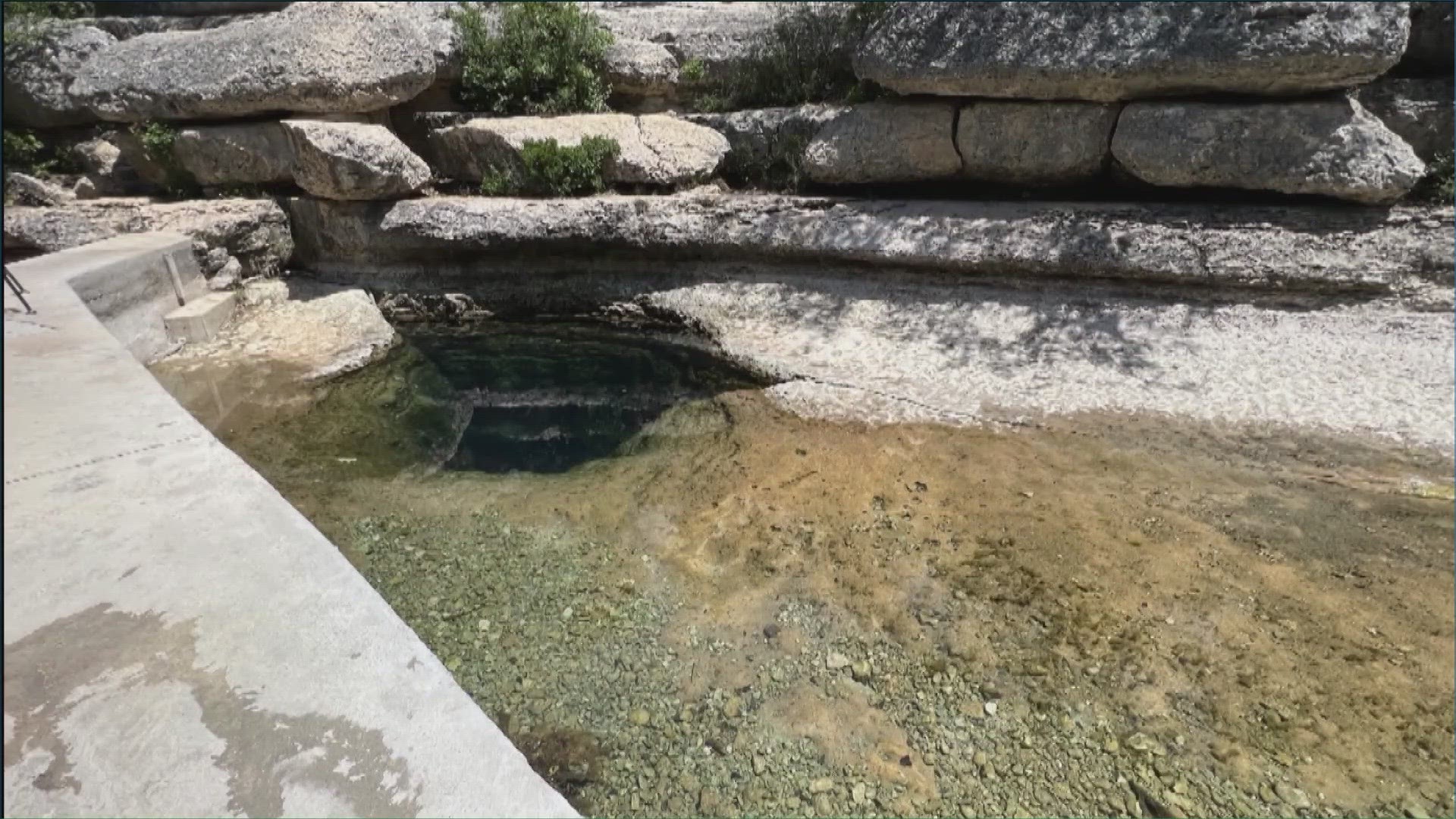AUSTIN, Texas — Austin is the latest city to further restrict water usage. City leaders announced the implementation of Stage 2 water restrictions on Aug. 15.
This latest restriction comes as the combined storage level of water in Lakes Travis and Buchanan is projected to drop below 900,000 acre-feet within the next few days. Lake Travis is only 42% full, while Lake Buchanan is 53% full.
The Lower Colorado River Authority (LCRA) is also set to implement Stage 2 restrictions this weekend. LCRA originally entered Stage 1 in July 2022.
A spokesperson with the agency explained what its customers should expect:
"In Stage 2, LCRA will request firm customers – mostly municipalities, water districts and industries – implement mandatory drought response measures with a target of reducing water use by 10%-20%. Each firm customer has its own drought contingency plan to determine when and how to cut back water use."
The ongoing restrictions have raised red flags among advocates, who claim they have been warning people for years about not having a proper management plan.
Shannon Hamilton, the executive director for the Central Texas Water Coalition, reiterated the fact that with the state in a severe drought and no rain in sight, there is still no management plan set in place until 2025.
"We don't know when it's going to rain again. We just don't know when, and we have to rely on what we have because once it's gone, it's gone," Hamilton said.
Another concern is aquifers, which are natural underground areas that hold water.
There are three aquifers – the Trinity, the Edwards and the Carrizo-Wilcox – that run underground beneath cities in the Central Texas area. According to Hamilton, those aquifers are beginning to dry out and need to be protected.
"We need to treat them as a last resort," Hamilton said.
Other advocates cite climate change and rapid growth in population as additional causes to the strain in water supplies.
"The short-term measures to conserve water, but also the longer term structural changes that can make us more water resilient for the future," said Luke Metzger, the executive director of Environment Texas.
Metzger said although Central Texas hasn't seen the worst, he hopes that everyone takes the restrictions serious.
"It's critical that we're thinking ahead and planning ahead to avoid those worst-case scenarios," Metzger said.

